May to trigger Brexit: What the European papers say
- Published
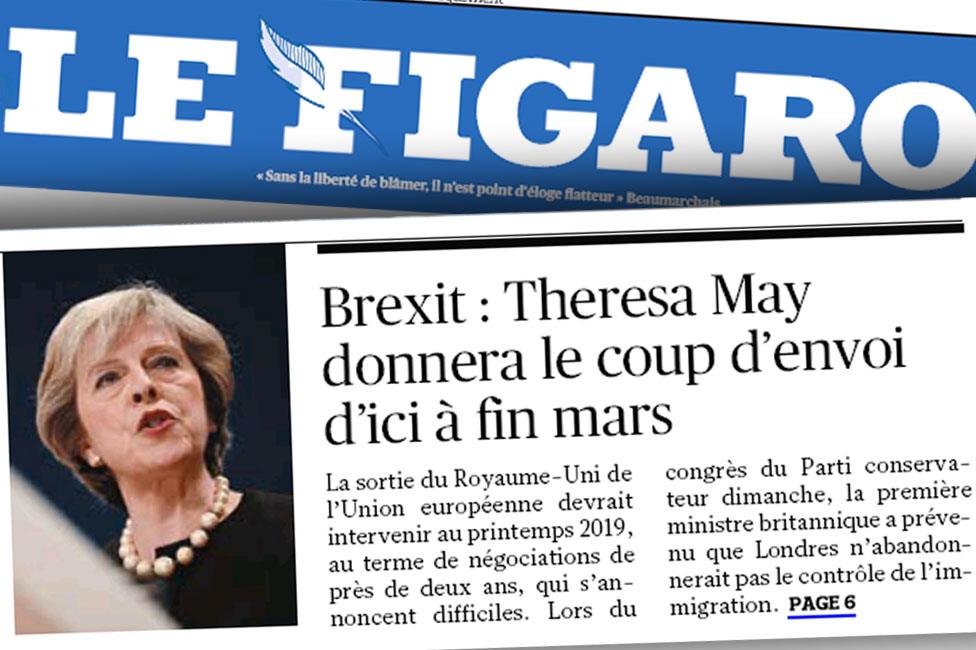
French paper Le Figaro praised Mrs May's "firmness" on the issue of negotiations
Theresa May's plans to begin formal Brexit talks with the EU by the end of March 2017 have been widely discussed by the press on the Continent. The papers expect difficult talks on "operation Great Divorce", wondering whether the British prime minister has a clear vision of what she wants to achieve.
The French conservative daily Le Figaro, external welcomed Mrs May's "firmness" on the issue of negotiations "that promise to be tough", in particular with regard to migration control and the single market.
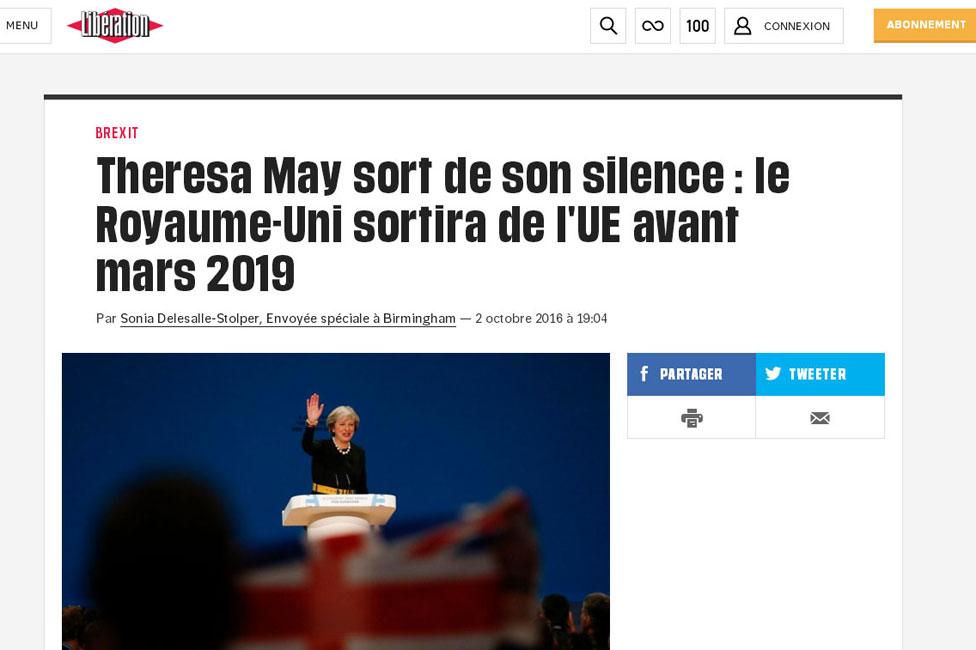
Liberation's headline said: "Theresa May breaks her silence"
But Liberation, external said she had "set the bar extremely high" ahead of the lengthy talks with 27 EU member states.
"By actually ruling out free movement, Theresa May appears to be heading towards what some call 'hard Brexit', which would mean a complete exit from single market," the paper said.
The centre-left daily Le Monde, external is sure Mrs May is a "hard Brexit advocate, wrapped in the flag of a 'Global Britain' that will sever its ties with the EU".
It welcomes the clarity she has brought to the process, but asks for more detail from both London and Brussels.
"If Britain aims to be 'Singapore across the Channel', then World Trade Organisation rules will apply. But if London wants a deal, then the EU faces the challenge of devising a status that doesn't encourage other member-states to act like the British," and opt to leave, the editorial says.
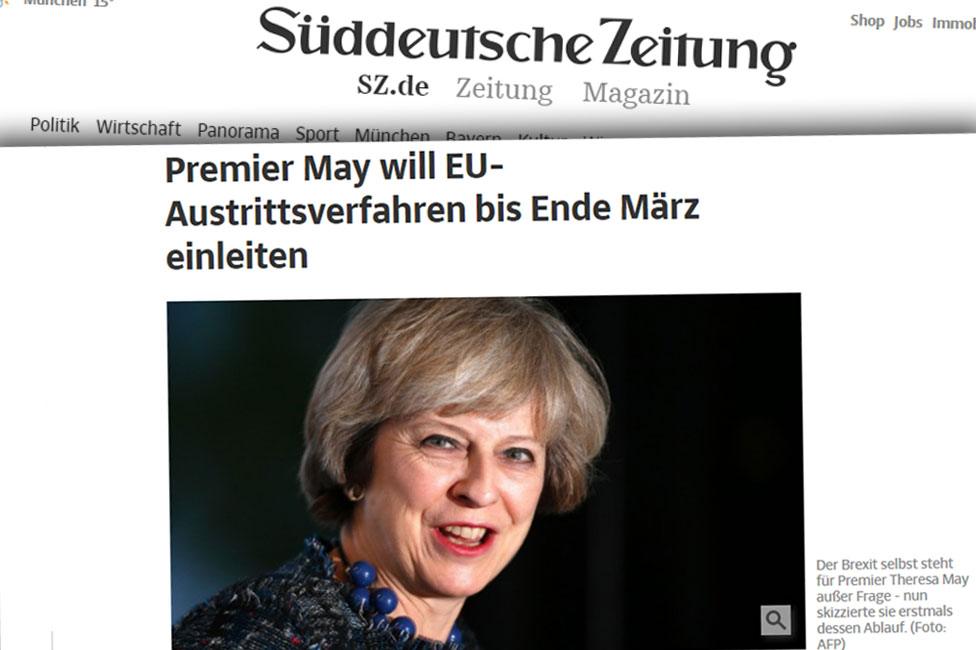
Germany's Süddeutsche Zeitung talked of "heated discussions" in the UK cabinet
German Sueddeutsche Zeitung, external agreed the Conservatives were lacking "a common line on the forthcoming negotiations".
"There are heated discussions even within the cabinet itself on whether the UK should renounce access to the EU single market in favour of stricter migration rules for EU citizens," it added.

Italian daily Corriere Della Sera (R) expects a painful separation
The Romanian paper Revista 22, external said: "In the course of negotiations London is counting on getting unlimited access to the single European market, although it is reluctant to accept free movement of European workers."
The Italian economic daily Il Sole 24 Ore, external asked: "Will London be ready for a reasonable exchange of the movement of workers for access to parts of the single market?
"She appeared firm but also aware that these are the real crucial issues in the talks that the UK has decided to open sooner than expected."
The "timetable for operation Great Divorce" came as a surprise to Rzeczpospolita, external, a leading Polish daily.
It said no-one had expected any such moves before next year's elections in Germany, France, the Netherlands and Italy.
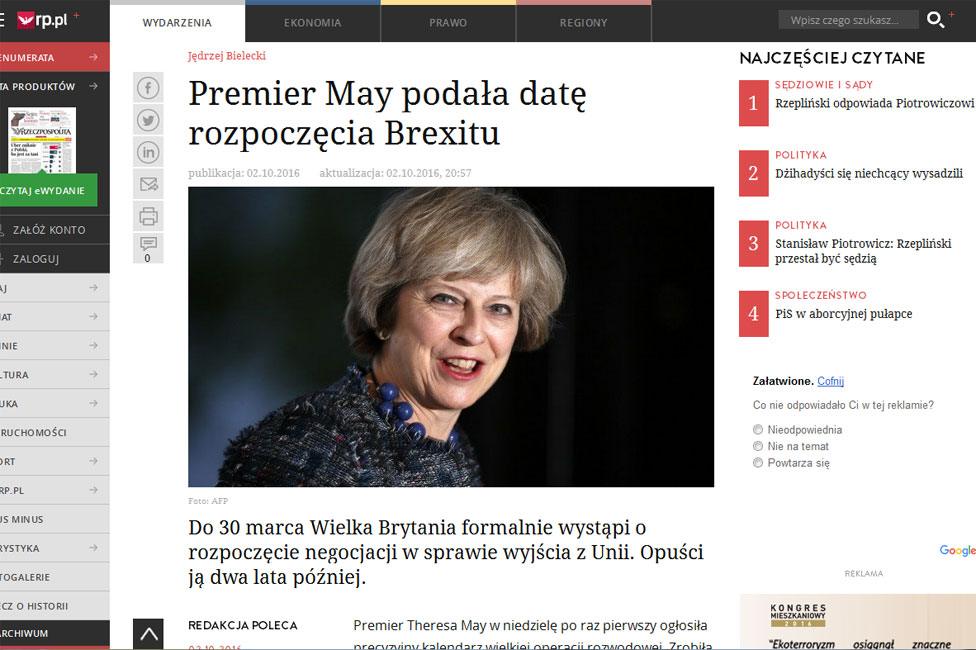
Poland's Rzeczpospolita said there would be no agreement on concessions before German elections
"Until then the EU's most important capitals will not want to agree on any concessions for the British, because… their departure from the EU could boost support for the populists", Rzeczpospolita added.
The Italian paper Corriere della Sera, external envisions a painful "separation of property like in any divorce".
"Given the aggravating circumstance it will be very difficult… to disentangle the financial complexities of a very crowded marriage such as the European one is," it said.
"London certainly does not want to make concessions and demands everything it deserves. Starting with wine and artwork.
"It is not a joke. There are 42,000 bottles of fine wines, cognac and other spirits in the cellar of the European Commission.
"Of all of this, the British negotiators demand their share. As is the case for the rich contemporary artwork collection of the European Parliament."
Holger Steltzner, the editor of Germany's conservative Frankfurter Allgemeine Zeitung, external, agrees a hard Brexit will be painful - but for the EU rather than Britain.
He warns that tariffs on British goods would "hit the EU harder, because of our larger budget deficits", and the City of London would still be competitive as the "world's greatest financial centre".
He calls on the EU to explain "how it will deliver on its promises of prosperity, instead of watching Britain prove that a medium-sized country can succeed on its own in a globalised world" and possibly encourage other EU states to follow its example.
Some East European media pick up on Home Secretary Amber Rudd's pledge to make firms do more to employ British people.
Hungary's Index, external news site notes the large numbers of Hungarian workers that this may affect, and warns that "some people are already saying the government is making racism almost compulsory in Britain".
BBC Monitoring, external reports and analyses news from TV, radio, web and print media around the world. You can follow BBC Monitoring on Twitter , externaland Facebook, external.
- Published2 October 2016
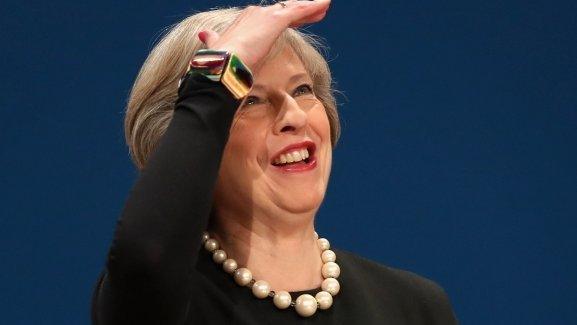
- Published2 October 2016